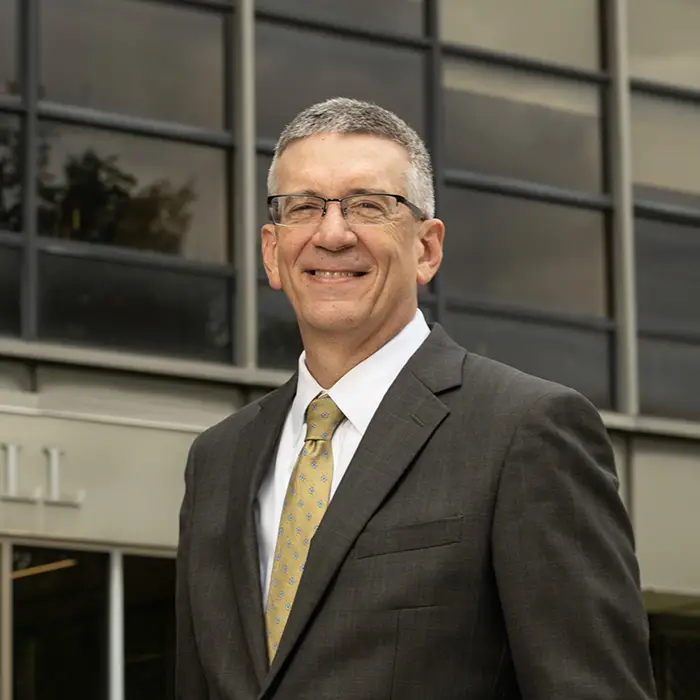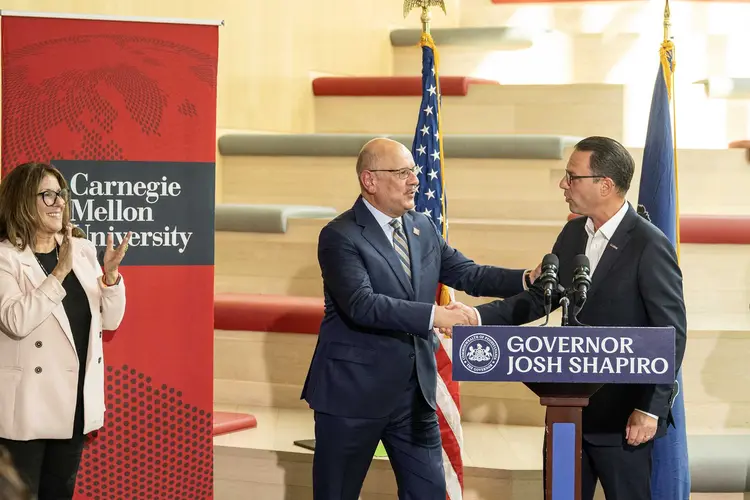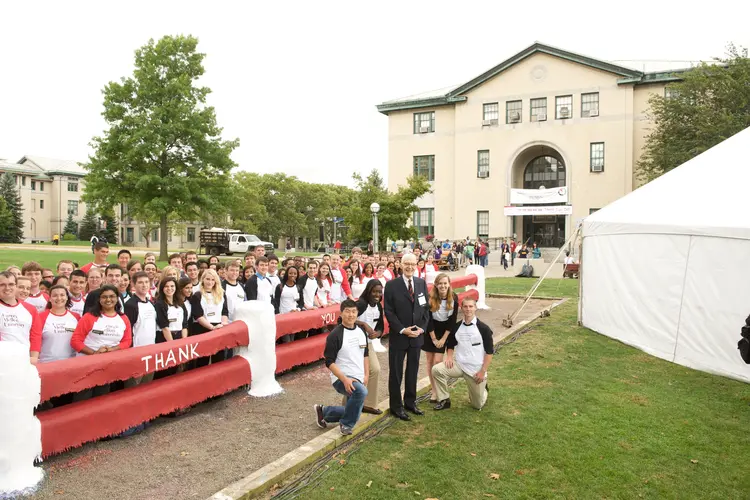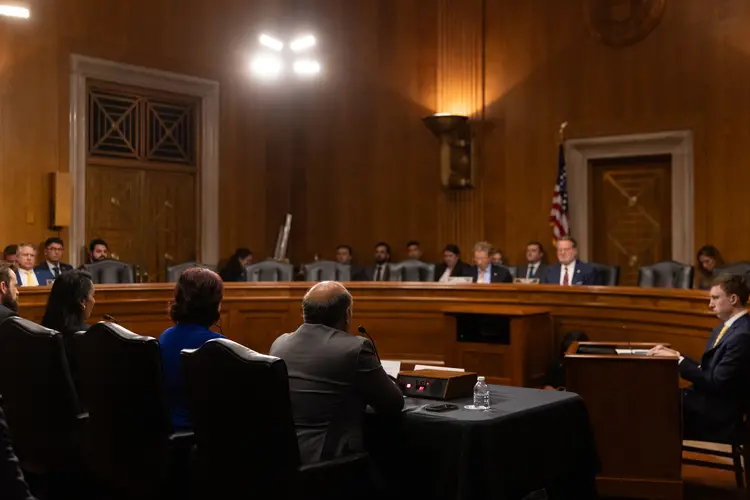Advancing Student Learning at CMU Through Generative AI
Media Inquiries
Carnegie Mellon University’s
New to the Eberly Center’s portfolio of offerings, the GAITAR Fellowship provides $5,000 for a CMU instructor to design and implement a teaching innovation using a generative AI tool in a spring, summer or fall 2024 CMU course. They must then measure the impacts of the innovation on student learning and disseminate their findings at CMU and beyond. The deadline for applications(opens in new window) is Nov. 1.
The fellowship aims to incentivize and lower barriers to innovation, implementation and the dissemination of educational research findings.
"We embrace this as an inflection point to take these tools and new ways of thinking to enhance our teaching and learning strategies.” — James H. Garrett Jr.
“In many ways, CMU is the birthplace of both learning science and AI and machine learning, dating back to the Newell and Simon days(opens in new window),” said James H. Garrett Jr.(opens in new window), CMU’s provost and chief academic officer. “If anybody should be advancing the research and application of AI in education, it should be Carnegie Mellon. We embrace this as an inflection point to take these tools and new ways of thinking to enhance our teaching and learning strategies.”
The Eberly Center recently finished delivering a GAITAR Institute on campus, a four-session program that generated ideas for teaching innovations implementing generative AI in CMU courses, preparing instructors to study the results with tangible Eberly Center support from start to finish.
Since 1996, the Eberly Center has brought pedagogical and technological issues together to support Carnegie Mellon faculty and graduate students in their roles as educators. The center, which fosters a culture of experimentation, innovation and iterative improvement through collaboration, approaches the use of AI with empirical questions — where do AI tools enhance student learning and experience? What do students consider as the benefits and tradeoffs of using AI? How can equitable access and outcomes be ensured when using AI?
CMU’s University Education Council will be convening town hall sessions in early November to hear students' and educators' perspectives on the most pressing needs and opportunities related to AI and its potential for impact on education. The full spectrum of community input will inform broader university strategies to advance the applications of generative AI in education.
“Many articles have shared that education is being upended by these new tools,” said Amy Burkert(opens in new window), vice provost for education. “There are, indeed, many changes taking place, but the question is, ‘How can we help our community leverage that potential into an asset rather than a cause for concern?’”
Generative AI Tools FAQ
The recent evolution of AI tools, such as ChatGPT, DALL-E 2 and GitHub Copilot, is impressive, as is the associated volume of media coverage.
In response to inquiries from CMU colleagues, the Eberly Center compiled a list of frequently asked questions(opens in new window) informed by evidence-based and inclusive teaching strategies, CMU policies, and the current state of technology tools.
Watch Haylee Massaro deliver a talk on embracing generative AI in the classroom during the Eberly Center's 2023 Teaching and Learning Summit.
“We want to make sure that our entire community’s voices are heard, especially those of our students so we can better understand their most pressing needs and the exciting opportunities they see related to generative AI,” Burkert said.
“We are taking a very scientific approach to this — a learning science approach,” said Marsha Lovett(opens in new window), vice provost for teaching and learning innovation and co-coordinator of The Simon Initiative(opens in new window), CMU’s learning-engineering ecosystem that works to improve student learning outcomes. “We are actively supporting our faculty members to lean in, learn about generative AI, and incorporate it into their teaching where it can benefit students. On top of that, we are actively supporting faculty to study its impacts on student learning and the student experience. We must continue to be data-informed on this.”
The work to apply generative AI tools and techniques in the classroom is only one part of a broader university strategy to advance the next generation of artificial intelligence’s impact across education, research and society. The university has been increasingly called upon for its AI expertise by public and private sector partners. Most recently, Gov. Josh Shapiro visited CMU(opens in new window) to announce an executive order on the use of generative AI in Commonwealth agencies. CMU’s Block Center for Technology and Society(opens in new window) one of the nation’s leading research centers working to shape the impact of these technologies, will partner with the Shapiro administration on this effort.





